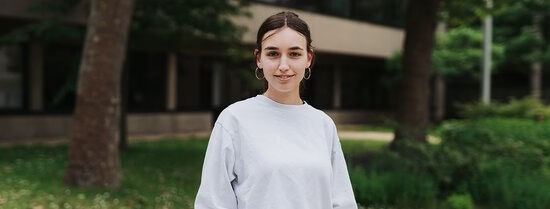What does this study entail?
During this international bachelor's programme, you will learn to understand how changes and events in the past affect our daily lives. You will make the crucial link between then and now and search in the past for answers to social issues that concern politics, the media or citizens today.
The International Bachelor History at Erasmus University Rotterdam is unique in its multifaceted approach. You primarily look at modern global history (from 1500 and onwards) through a social, cultural, political, and economic lens. This means that you study history more thematically (e.g. the history of migration and citizenship) and less based on historical periods – as is usual in other history departments.
Is this the right programme for you?
Why are some regions rich, while others remain poor? Why does gender inequality persist through history alongside economic disparities? How have disasters shaped societies and how do communities respond to inequality in times of crisis? And what profits did multinational corporations gain from European colonisation?
Do these kinds of questions appeal to you? Then the International Bachelor History at Erasmus University Rotterdam is the programme for you. By focusing on modern history and looking at it through overarching themes, you will do your research and learn to provide answers to contemporary social questions as mentioned above.
5 reasons to study the International Bachelor History at Erasmus Universiteit Rotterdam (EUR)
- Thanks to the engaging workgroups, the enthusiastic lecturers, and the mentor system, you receive personal help with your studies.
- Every year, the bachelor is at the top of the National Student Survey and the Study Choice Guide.
- The labour orientated focus of the bachelor prepares you for a career in, for example, education, research, government, media, or cultural institutions.
- The Erasmus University Rotterdam offers high-quality master’s programmes that complement this bachelor, including the Erasmus Mundus Programme GLOCAL.
- You will study in a multicultural, dynamic, and thriving city at a modern and progressive university.

The best history bachelor in the Netherlands
Students appreciate the competence of lecturers
The Dutch and English bachelor History have been at the top of the Studiekeuze rankings for years. What is valued most about the bachelors is the expertise of the lecturers, the way assessments and exams are structured, and the vibe within the programme. With a score of 69, Erasmus University Rotterdam is three points ahead of the University of Amsterdam and Utrecht University.
A word from our students
Chat with a student
Ask our students about their studies, Rotterdam and student life.


